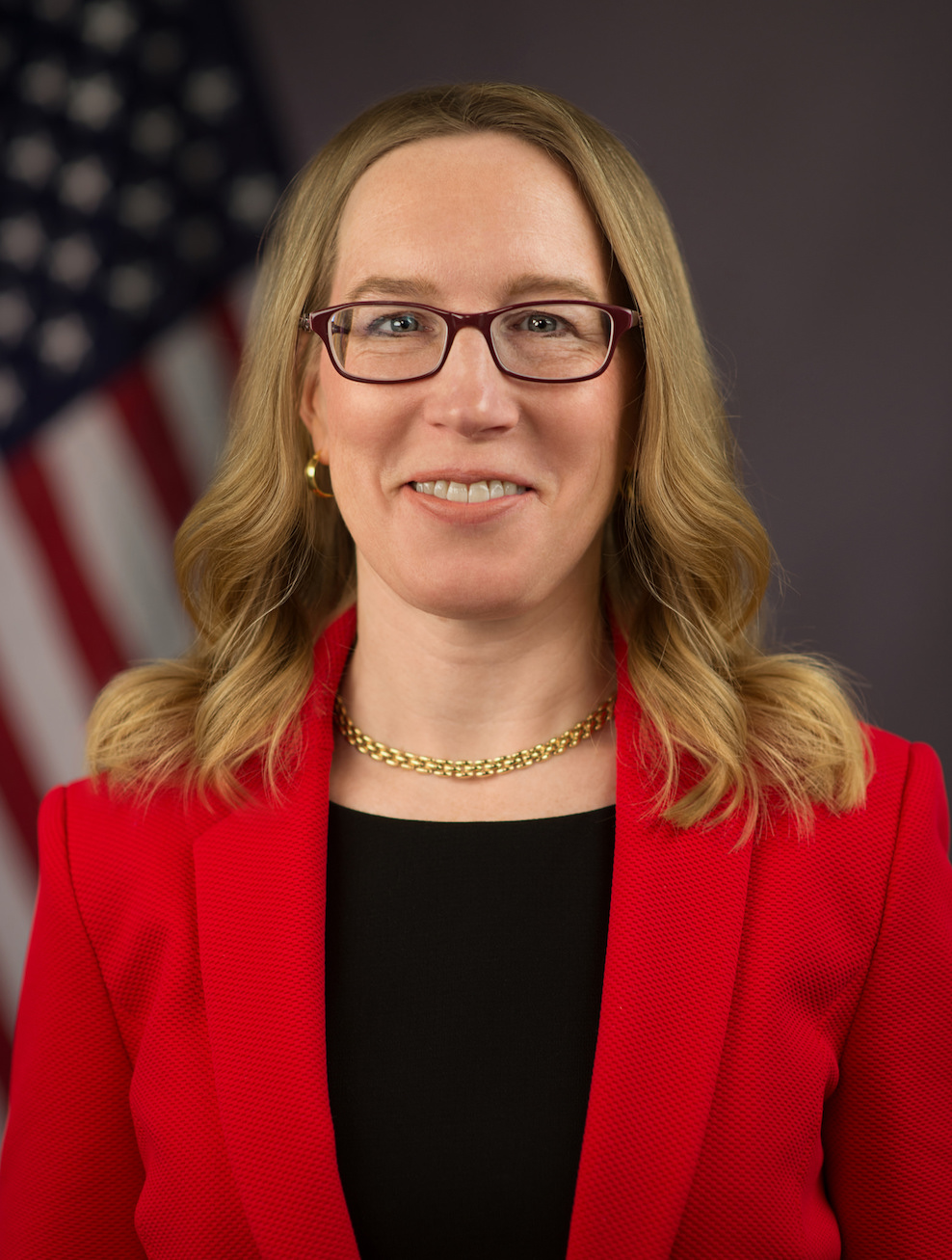Caroline Crenshaw and Hester Peirce's nominations for the SEC were confirmed by the Senate in voice vote Thursday in the final step before Crenshaw takes on the mantle of commissioner, while Peirce is set to continue her role at the SEC for a further five years.
The full Senate confirmed Crenshaw for a term lasting until June 5, 2024, while Peirce will be at the SEC until June 5 of the following year. The full Senate vote came a day after the Senate Banking Committee approved their nominations. The successful nominations mean every seat on the Commission is now filled.
During the committee hearing on Wednesday, Committee Chair Sen. Michael Crapo (R-Idaho) said the nominations could mean the SEC could continue to balance its long-term missions with responding to the COVID-19 pandemic.
SEC Commissioner Hester Peirce
“As the SEC has proven most recently with its proxy voting rule and supplemental guidance, it is capable of conducting quick and decisive actions related to COVID-19, while advancing rulemaking, and I encourage the SEC to continue these and other efforts related to capital formation and corporate governance,” he said.
The voice vote in the Banking Committee was held for both Crenshaw and Peirce simultaneously. Often, Republican and Democratic nominations for the SEC are paired in order to move through the Senate confirmation process expeditiously, according to Micah Hauptman, a financial services counsel with the Consumer Federation of America.
Sen. Sherrod Brown (D-Ohio), the committee’s ranking Democratic member, said during the Banking Committee hearing that he was going to vote for both nominees but cautioned them that the public would be trusting them to understand the plight of investors who are investing in retirement plans, saving for their children’s college fund or buying a home.
“We want our markets to be fair and available to everyone; that doesn’t mean rolling back important safeguards,” he said. “As commissioners, if they don’t put those families first, who will?”
Crenshaw has been with the SEC since 2013 and worked under Jackson and previous commissioner Kara Stein. She has also worked as an associate at the law firm Sutherland, Asbill & Brennan and is also a judge advocate in the U.S. Army JAG Corps.
Prior to her SEC nomination, Peirce worked as a senior counsel on the Senate Banking Committee and worked in the SEC under Commissioner Paul S. Atkins and as a staff attorney in the SEC’s Division of Investment Management.
Peirce and Crenshaw both testified during a committee hearing last month, answering questions from lawmakers about their background and goals for the SEC. Crenshaw spoke about ensuring that Regulation Best Interest was as effective as possible, including making sure that the Form CRS was useful to investors and that firms were putting policies into place to mitigate conflicts of interest.
“We need to make sure over time rules are actually changing the status quo for investors,” she said.
During her testimony, Peirce spoke about ways the agency could set up a regulatory framework for cryptocurrency offerings; she has renown among crypto advocates due to her interest in the subject.
“One thing we can do to improve the landscape is set out clear guardrails and clear guidance about when something is a securities offering, or as I’ve suggested, creating some kind of safe harbor that allows these initial coin offerings to happen, but allows them to happen with certain disclosures,” she said. “I think that would be a good way of separating the wheat from the chaff.”

